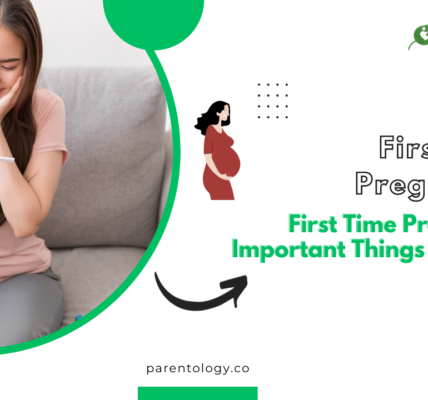Understanding the 10th Month of Pregnancy: Debunking the Myth of a 10-Month Pregnancy
When it comes to pregnancy, there’s a common myth that it lasts for nine months. However, the reality is a bit different. In this comprehensive guide, we’ll explore the 10th month of pregnancy and why it’s often referred to as a 10-month journey. Join us as we dive deep into the intricacies of this fascinating period, debunking the myths and providing you with valuable insights.
Is Pregnancy Really 10 Months Long?
Contrary to the popular belief of a nine-month pregnancy, it’s more accurate to say that pregnancy typically spans approximately 40 weeks. This duration includes the time from the first day of your last menstrual period (LMP) to the day you give birth. In this sense, pregnancy indeed extends to ten months. However, it’s essential to understand the way months are counted in pregnancy, which often leads to the misconception.
Developmental Milestones in the 10th Month
As you enter the 10th month of your pregnancy, your baby is making incredible strides in development. Here’s a closer look at what’s happening during this crucial phase:
1. Baby’s Growth:
Your baby is rapidly gaining weight, and their organs are nearly fully developed. By this stage, they resemble a fully formed, albeit miniature, human being.
2. Brain Development:
The brain continues to grow and develop, laying the foundation for your baby’s future cognitive abilities.
3. Amniotic Fluid:
The volume of amniotic fluid begins to decrease as your baby occupies more space in your uterus.
4. Positioning:
Ideally, your baby should be in a head-down position, getting ready for their journey through the birth canal.
5. Fetal Movements:
While space is limited, you should still feel your baby’s movements regularly. These may include less vigorous kicks and more subtle shifts.
What to Expect in the 10th Month
As you approach the final weeks of pregnancy, there are several changes and experiences you might encounter:
1. Increased Discomfort:
You might experience more discomfort, including backaches, swelling, and increased pressure on your bladder. These are common signs that your body is getting ready for labor.
2. Braxton Hicks Contractions:
These “practice” contractions become more frequent and intense as your body prepares for labor. They are different from actual labor contractions but can be confusing for first-time mothers.
3. Nesting Instinct:
Many expectant mothers feel a strong urge to nest and prepare their home for the baby’s arrival. This includes organizing, cleaning, and creating a welcoming space.
4. Emotional Rollercoaster:
With the anticipation of labor and motherhood, you may experience a mix of emotions, from excitement to anxiety. It’s essential to talk about your feelings with your support system.
5. Preparing for Labor:
Now is the time to pack your hospital bag, finalize your birth plan, and ensure you’re ready for the big day. Make a checklist to ensure you don’t forget essential items.
FAQs: Clearing Up Common Questions
Q1. Is a 10-month pregnancy common?
No, a full-term pregnancy is typically around 9 months or 40 weeks. The idea of a 10-month pregnancy is a misconception due to the way months are counted in pregnancy.
Q2. Can I induce labor in the 10th month?
Inducing labor is typically done if there are medical reasons to do so. Your doctor will guide you on when and how this should be done.
Q3. Is it safe to travel during the 10th month of pregnancy?
Travel during the 10th month is generally discouraged, as it can be physically demanding. Consult your healthcare provider for advice.
Q4. What can I do to alleviate discomfort in the 10th month of pregnancy?
To reduce discomfort, try gentle exercises, prenatal yoga, and use pregnancy pillows to support your body.
Q5. How should I prepare for labor and delivery in the 10th month?
Create a birth plan, pack your hospital bag, and have a plan for getting to the hospital or birthing center.
Q6. What is a “post-term” pregnancy?
A post-term pregnancy is one that goes beyond 42 weeks. Your doctor will closely monitor you if this occurs.
Q7. Can I have a natural birth in the 10th month?
Many women have natural births during the 10th month of pregnancy. Discuss your birthing preferences with your healthcare provider.
Q8. How can I relieve stress and anxiety in the 10th month of pregnancy?
Engage in relaxation techniques, such as deep breathing and meditation, and seek emotional support from loved ones.
Q9. What are the signs of labor in the 10th month?
Signs of labor include regular contractions, water breaking, and a “bloody show.” Contact your healthcare provider if you suspect you’re in labor.
Q10. When should I call my doctor in the 10th month of pregnancy?
Contact your doctor if you experience any concerning symptoms, such as severe pain, bleeding, or a significant decrease in fetal movement.
Conclusion
While the 10th month of pregnancy might feel like an extended journey, it’s a crucial time of preparation for both you and your baby. As you navigate the final weeks, remember to stay in close contact with your healthcare provider, attend regular check-ups, and take good care of yourself. Soon, you’ll be welcoming your little one into the world, and the joy of motherhood will begin. Embrace this extraordinary chapter with excitement and confidence! Visit Parentology for more valuable insights on pregnancy and parenting.





